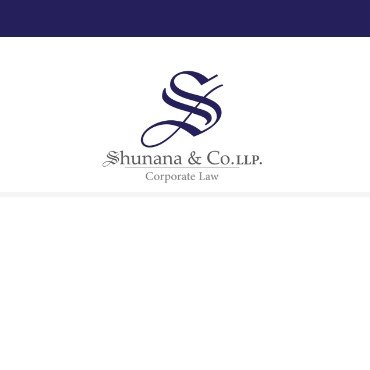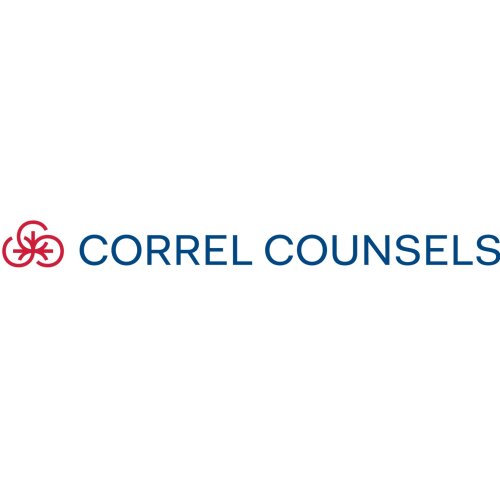Best Job Discrimination Lawyers in Maldives
Share your needs with us, get contacted by law firms.
Free. Takes 2 min.
Or refine your search by selecting a city:
List of the best lawyers in Maldives
About Job Discrimination Law in Maldives
Job Discrimination law in the Maldives addresses unfair treatment of employees or job applicants based on their gender, age, nationality, physical disability, religion, race, marital status, or political views. It is noteworthy that The Employment Act of 2008 stipulates these protective measures and assures equal opportunity and fair treatment in employment and occupation. Any form of victimization or harassment is proscribed and considered punishable under Maldivian law. Employers treating employees or potential employees unfavorably based on the protected characteristics can be held legally culpable.
Why You May Need a Lawyer
You may require a lawyer if you feel you've been discriminated against at your workplace or during a job application process in the Maldives. This can comprise scenarios such as experiencing prejudice during hiring, pay, job assignments, promotions, layoffs, trainings, fringe benefits, and any other term or condition of employment. A proficient lawyer can guide you, help you understand the nitty-gritty of the law, advocate on your behalf, and represent you in court if necessary. If you suspect you are being victimized or harassed at your workplace based on your personal characteristics, you should immediately seek professional legal advice.
Local Laws Overview
The key law regarding job discrimination in the Maldives is The Employment Act 2008. This law emphasizes the right to equal opportunity and fair treatment in employment. According to this Act, no individual shall be discriminated against based on their race, color, social origin, political opinions, religion or any other status. It clearly defines discriminatory conduct that includes any distinction, exclusion or preference that impairs equality of opportunity in advertisement, application, selection, recruitment, terms of employment, termination, or other related aspects of employment.
Frequently Asked Questions
What constitutes job discrimination in Maldives?
Job discrimination can be any unfair treatment directed towards you because of race, color, social class, marital status, family obligations, background, infringement of rights, or gender. It can occur at any stage of employment, including recruitment, determination of salary, job assignment, promotion, training, and termination.
Can I file a report if I'm experiencing job discrimination?
Yes, if you believe you've been unfairly treated or discriminated against based on the protected categories, you can file a complaint with the Ministry of Labour Relations and Families or your respective employer's Human Resources department, or even seek legal assistance.
Can my employer retaliate against me for complaining about discrimination?
No, the law strictly forbids employers from penalizing any employee who has lodged a discrimination complaint. This is considered retaliation and is punishable under Maldivian law.
What are the consequences of violating job discrimination laws?
Violation of job discrimination laws can result in severe penalties including fines, imposition of mandated training or equitable relief, punitive damages, or even imprisonment.
What is the time limit for filing a job discrimination complaint?
The exact time limit may vary, so it is essential you act swiftly when you believe you've been the victim of job discrimination. Professional legal advice can help you ascertain how to proceed.
What evidence is needed to prove job discrimination?
Evidence may comprise work-related documents, testimony of witnesses, emails, or any other tangible form of proof that shows unfair treatment based on your protected characteristics.
Can a small business be held responsible for job discrimination?
Yes, irrespective of the size of the business, all employers are obliged to provide an environment that is free from discrimination.
What can I expect after filing a complaint?
The relevant body will conduct an investigation based on your complaint. You may be required to provide further evidence or testify during this process. If the claim is found to be valid, the appropriate measure as per law will be enforced against the violator.
Do I need a lawyer to file a discrimination complaint?
While it is not mandatory to have a lawyer to file a complaint, legal representation can greatly assist you in effectively presenting your case and ensuring appropriate proceedings of your claim.
Will the information I provide remain confidential?
Yes, all information you provide will be kept strictly confidential to the extent possible within legal constraints and the necessities of the investigation.
Additional Resources
You may refer to the official website of the Ministry of Gender, Family and Social Services for guidance on how to proceed with your complaint about job discrimination. Additionally, the Human Rights Commission of the Maldives can provide valuable insights and resources.
Next Steps
If you believe you are experiencing job discrimination, you should begin by documenting every instance, including dates, times, places, people involved, and what occurred. Talk to trusted co-workers to see if they have experienced similar treatment. Contact your organization's Human Resources department and lodge a formal complaint. If the matter is not resolved satisfactorily, you may proceed to file a complaint with the Ministry of Labour Relations and Families, or approach a lawyer for legal advice and potential litigation. Remember to act promptly to ensure your rights are protected.
Lawzana helps you find the best lawyers and law firms in Maldives through a curated and pre-screened list of qualified legal professionals. Our platform offers rankings and detailed profiles of attorneys and law firms, allowing you to compare based on practice areas, including Job Discrimination, experience, and client feedback.
Each profile includes a description of the firm's areas of practice, client reviews, team members and partners, year of establishment, spoken languages, office locations, contact information, social media presence, and any published articles or resources. Most firms on our platform speak English and are experienced in both local and international legal matters.
Get a quote from top-rated law firms in Maldives — quickly, securely, and without unnecessary hassle.
Disclaimer:
The information provided on this page is for general informational purposes only and does not constitute legal advice. While we strive to ensure the accuracy and relevance of the content, legal information may change over time, and interpretations of the law can vary. You should always consult with a qualified legal professional for advice specific to your situation.
We disclaim all liability for actions taken or not taken based on the content of this page. If you believe any information is incorrect or outdated, please contact us, and we will review and update it where appropriate.
Browse job discrimination law firms by city in Maldives
Refine your search by selecting a city.















